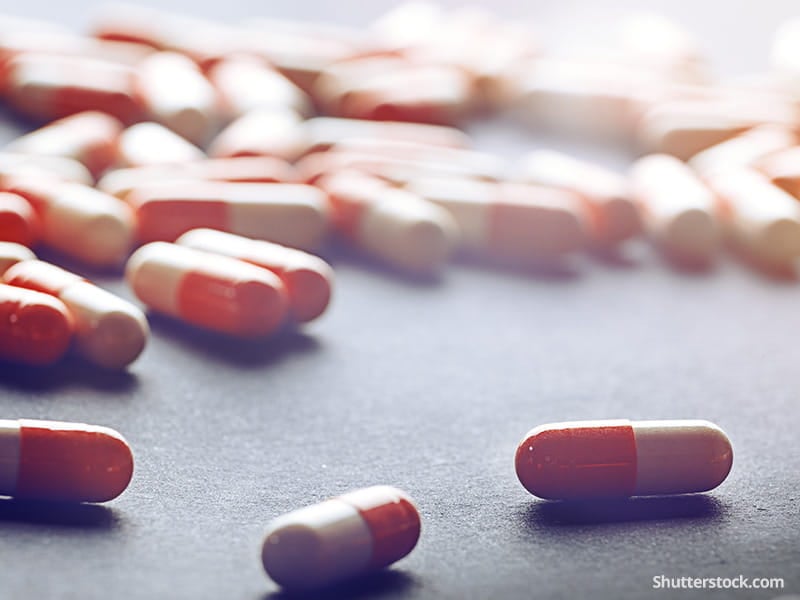
You look puffy and are looking at an extended tummy in the mirror that seems to have come from nowhere. There are a plethora of things that can make you feel and look bloated like booze, last night's Chinese food or too much sugar. The last thing you're probably thinking is that it's water weight, right? Considering the average adult human body is made of 50 to 75 percent water, water retention is very plausible. Water retention, also known as fluid retention refers to an extreme build-up of fluid in the circulatory system, tissues or in the hollows of the body. You can retain as much as 6 pounds of water at the end of the day depending on your health and what you ate. However, over time this can become dangerous as carrying too much fluid is known as edema. Edema is the medical term for swelling. It can affect the hands, arms, face, abdomen, the heart, kidneys and lungs and lead to health complications. Thankfully, by making simple lifestyle modifications, you can keep your water weight in check.
Watch your sodium.
According to the American Heart Association (AHA), Americans consume almost 3,400 milligrams of sodium a day and are not even aware of it. One-third of American adults have high blood pressure. "And 90 percent of American adults are expected to develop high blood pressure over their lifetimes," AHA reported. There are many reasons we need to avoid a lot of salt in our diets. Too much salt can weaken the heart, kidneys, liver, the brain and is linked to cancer. Since 75 percent of our intake of salt comes from packaged foods, we need to avoid them as much as possible. Consuming too much sodium causes your body to retain water and to gain weight since sodium plays a role in water retention in your cells.Avoid certain medications if possible.
People who take medication could be at a higher risk for water retention. Pain relievers like aspirin and ibuprofen may cause bloating, water retention and could cause swelling in the body. Birth control pills may also cause water weight because they contain estrogen. The more estrogen in the pill, the higher the fluid retention rate will be. Corticosteroid, an anti-inflammation drug for arthritis and joint pain, can produce water weight as well.Reduce your carbs.
According to eatthis.com, consuming carbs like bread and pasta will pack on water weight. "One gram of carbs store 3-4 grams of water —so if you're consuming more carbs than you can efficiently use in one sitting, they'll end up getting stored as glycogen and make you hold onto more water." Rice, milk, cream, fruit and vegetables can also make you retain water. This could be the reason people on low carb diets lose weight so quickly.Start exercising.
Whether you spend the day sitting at a desk or don't have an interest in moving about, inactivity can cause water weight. The body ends up holding onto the water and this leads to swelling in the legs and ankles from being stationary. Yoga is considered a great exercise for people who have water retention problems because it stimulates the flow of blood throughout the body. If your legs are swelled elevate them above your head or "Hold the swollen part of your body above the level of your heart several times a day. In some cases, elevating the affected body part while you sleep may be helpful," mayoclinic.org suggested. Walking and swimming are low-impact exercises and they could be beneficial in combating excess water in the body.Make sure you're not dehydrated.
Dehydration happens when more liquid is coming out of the body through our cells than what is being taken into the system. “We lose water every day in the form of water vapor in the breath we exhale and in our excreted sweat, urine and stool. Along with the water, small amounts of salts are also lost," webmd.com shared. The signs of dehydration can be water retention, fatigue, headaches, dark yellow or amber colored urine. The body is an amazing machine and knows when to go into survival mode. When you become dehydrated the body will retain water to help it survive.Get more sleep.
Most people need between 7 and 9 hours of sleep a night and when they don't get this, it can cause all types of problems, like water weight. Researchers are discovering that a lack of sleep can be catastrophic to your health overall. Leading sleep scientist Matthew Walker said during an interview that the sleep-loss epidemic is ruining people. He said a single night of just 4 hours of sleep can reduce the natural killer cells in the body by 70 percent. These killer cells attack rogue cells like cancer, he told theguardian.com. A lack of sleep "Sinks down into every possible nook and cranny. And yet no one is doing anything about it. Things have to change: in the workplace and our communities, our homes and families.”Eat more fiber.
Eating enough fiber can improve your colon health, aid in weight loss and can help you reduce the risks of water retention. Also, soluble fiber is converted into a gel which stays without being absorbed in the digestive tract and keeps you feeling full for a longer period of time. There are several natural foods that have a high content of soluble fiber. They include beans, grains, flax seeds, lentils, peas, turnips, sweet potatoes and asparagus. They all can contribute to your digestive health and reduce the risks of water weight.Losing water weight is important, but what is more important is deducing why you're retaining water. If lifestyle changes are not doing it for you, talk to a medical professional to rule out any underlying health issues.

